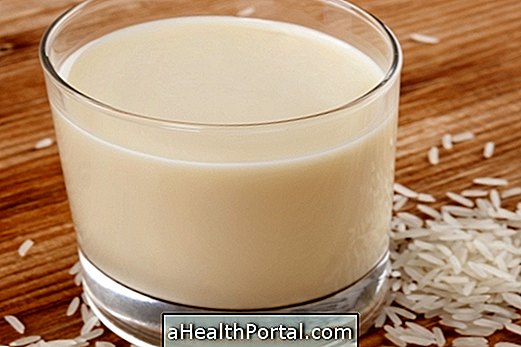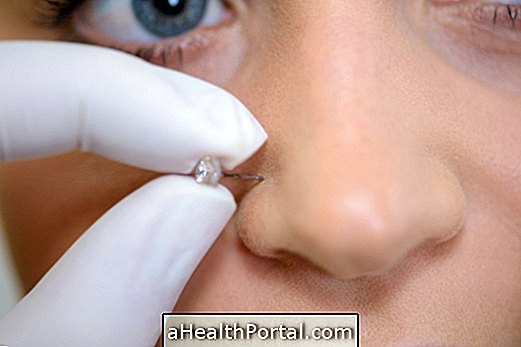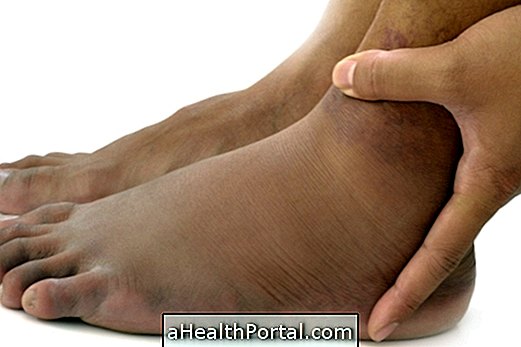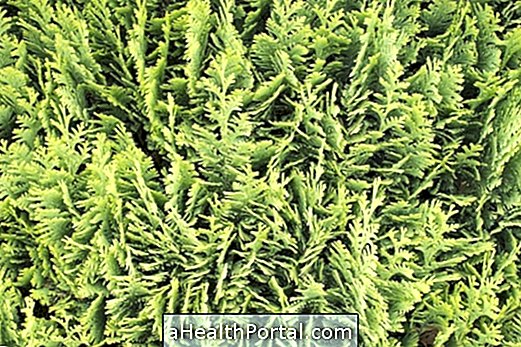Apple cider vinegar is super antioxidant and can improve joints besides having the ability to prevent diseases like diabetes and cancer by being rich in minerals, vitamins and phytochemicals.
This vinegar is made by fermenting apple juice, which is made through yeasts that turn the fruit sugar into alcohol. Then the alcohol is transformed into acetic acid by the bacteria acetobacter, causing this drink to bring the following benefits:

1. Help in weight loss
Apple cider vinegar helps in weight loss because it inhibits the action of enzymes that digest carbohydrates by reducing the absorption of foods like breads, pastas, sweets and milk.
So consuming about 1 tablespoon of apple cider vinegar before lunch and dinner can help reduce the amount of calories absorbed by the gut. Here's how to use apple cider vinegar to lose weight.
2. Prevents diabetes
As apple cider vinegar reduces the absorption of carbohydrates, it also helps reduce the secretion of insulin, a hormone that stimulates the storage of diet calories in the fat tissue in the body.
Diabetes occurs due to high levels of insulin in the blood and, by helping to decrease insulin production, vinegar also helps in the prevention of diabetes and insulin resistance.
3. Prevents cancer
Apple cider vinegar is rich in substances called polyphenols, which are powerful antioxidants that protect cells against changes that trigger problems like cancer. However, further studies are needed to confirm this benefit.
These antioxidants also help reduce inflammation in the joints, relieving pain and improving joint movement.

4. Improves digestion
Due to its fermentation, apple cider vinegar is rich in enzymes that aid in the digestion of food and accelerate gastric emptying, protecting the stomach and facilitating digestion.
In addition, it possesses acids such as malic, lactic and citric, which help the liver's proper functioning and detoxification of the body.
5. Improves skin and nails
Apple cider vinegar improves paronychia, an infection at the edge of the nail that usually arises when a skin or manicure injury occurs. Find out what it is and how to treat the paronychia.
On the skin, it helps to reduce blemishes, relieve itching of mosquito bites and to control dandruff, as the acidity has antifungal properties.
Nutritional information
The following table shows the nutritional information of 100 g of apple cider vinegar:
| Nutrient | Amount |
| Energy | 20 kcal |
| Carbohydrate | 0.93 g |
| Sugar | 0.4 g |
| Protein | 0 g |
| Fat | 0 g |
| Calcium | 6.7 mg |
| Potassium | 73.3 mg |
Apple cider vinegar can be added in salads and to season meats, and can be brought to the fire or to the oven. However, it is not recommended to consume the pure vinegar.
It is important to remember that the composition and amount of acid may vary according to the manufacturer and the fermentation process used to produce the apple cider vinegar.
Dangers of Using Apple Cider Vinegar
Due to its acid content, overuse of apple cider vinegar can cause problems like:
- Wear tooth enamel, increase the risk of cavities;
- Injury to the throat, especially in cases of reflux and lesions in the esophagus and stomach;
- Interfering in the functioning of diabetes medications and hypertension, especially diuretics;
- Burn the skin and cause redness and burning when the acid is placed directly on the skin, undiluted and very frequently.
The use of vinegar can be dangerous because the acid concentration varies between brands and even within the same brand because it depends on the fermentation time and quality of the fruits used to manufacture the product. Thus, it is always recommended to use apple cider vinegar to treat or prevent health problems, especially skin, according to medical guidance.

























